Over the past 5 years there has been a lot of discussion around investment fees. Seems like you can’t turn on the TV without watching a commercial discussing investment fees, retirement planning, investing etc. That’s because people’s finances are the construct of the lives we lead today and aspire to have tomorrow. In todays information rich, digital world, we are often given the false illusion that we can teach ourselves just about anything. Navigating this complex world has become increasingly difficult. Making smart decisions with our money is vital to our well being, so here are the big mistakes investors make when it comes to fees and advice.
- Not understanding investment fees
This is perhaps the biggest problem right now. Mutual Funds get a bad wrap because of the ‘high fees’. The issue with this, is that these ‘high fee’ mutual funds are usually the A Series of the fund which include the Product Fee and the Advisor Fee. While other investments, such as ETF’s only include the Product Fee and unless people are aware of this, very few will actually make an adjustment to compare them apples to apples.
Take a look at this fund with Dynamic Funds.
Equity
Income Series A – MER = 2.14%
Equity
Income Series F – MER = 1.01%
Both products are the same, however the Series F version is the pure product cost of the mutual fund, while the Series A version includes the advisor fee – 1% + Tax.
Contrast that with the Blackrock iShares S&P/TSX 60 ETF which has an MER around 0.18% and you may still think the Mutual Fund fees are vastly higher. Simply comparing the product fees, with the Mutual Fund you are paying for professional investment fund managers to select stocks and actively trade on clients behalf. The question is the extra fee for investment management worth it? Well looking at the 3, 5, and 10 year returns on these investments (by clicking the link above), the Dynamic Equity Income Fund out performs the Blackrock ETF net of fees (both Series A and Series F).
- Focus on Return Net of Fees
This brings me to my next point. Focus on the return net of fees. Don’t get me wrong, being aware of the fees you are paying is very important. However, being overly fee conscious can have negative impacts on your finances. The issue comes when you are so focused on reducing or eliminating investment fees that it starts affecting your return or the advice you receive.
From what I have experienced, those who focus solely on “paying less” aren’t interested in understanding the fees they are paying or what they are paying for and why certain fees perhaps should be paid. Ultimately, you should look for value in the fees paid and try to focus on your return net of fees.
- Financial Advisor doesn’t just Pick Investments
The most common stereotype of a financial advisor is that they simply pick investments for their clients. This is far from the truth. Recommending investments is just a small part of the job. Understanding our clients needs, doing goal setting and then building out a strategy to meet those goals is what a good financial advisor does. Reviewing yearly to ensure your plan is on track and ensuring you and your family are protected are also services provided by a financial advisor. Lastly, giving you the best advice possible when it comes tax planning, estate planning, retirement planning and investing can not only save you a lot of money but allow you to build a successful future for yourself and your family.
If you are not getting this from your advisor then you should look to see who else may be out there to support you and your family.
- Not all Financial Advisors are the same
Not all advisors are built the same. The services each advisor offers are different. Be sure to ask questions to find out what kind of services you will be receiving and for what cost. As we discussed earlier, investment fees comprise of a fund management and expense fee and an advisor fee. Many studies have showed that families receiving financial advice have more assets saved up at all points in their life.
You can go online to webmd and diagnosis yourself when you are sick, but you still go to the doctor. The same is true for your finances, you can do many things yourself but trying to save money by not working with a financial advisor can have more negative affects then positive. Align yourself with a good advisor who provides a wide breath of services and who’s fees are worth the value provided. A good start would be working with a Certified Financial Planner, people with this designation have received the highest designation for financial planning and have a fiduciary duty to do what is in their client’s best interest.
- Opportunity cost of doing it yourself
I can honestly say that best advice I have given clients, that has saved them the most money had little to do with investment returns. Investing is easy, anyone can do it. Structuring your investments for tax efficiency, now that’s hard and not many DIY investors can manage that.

